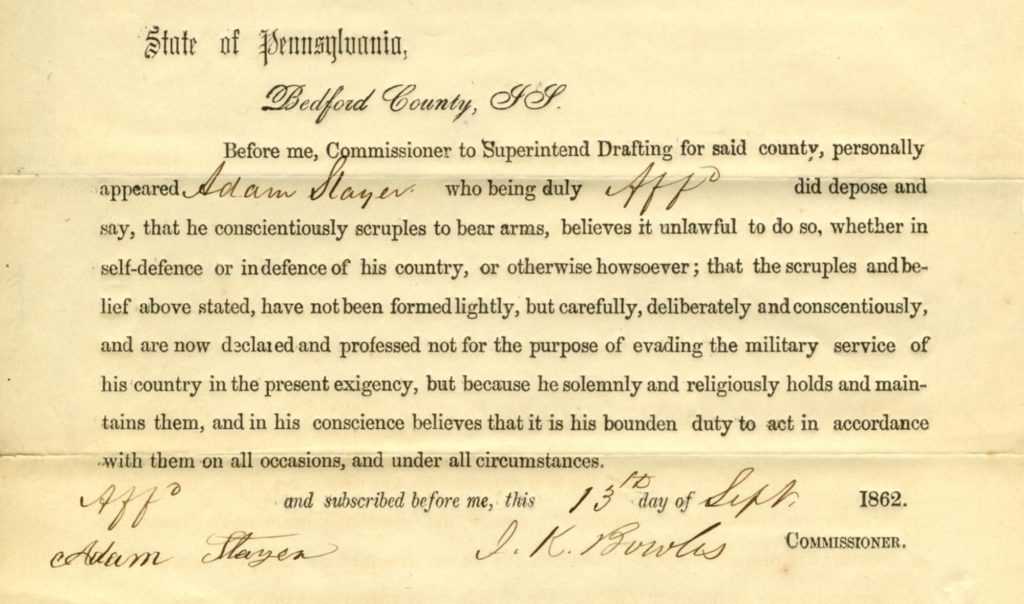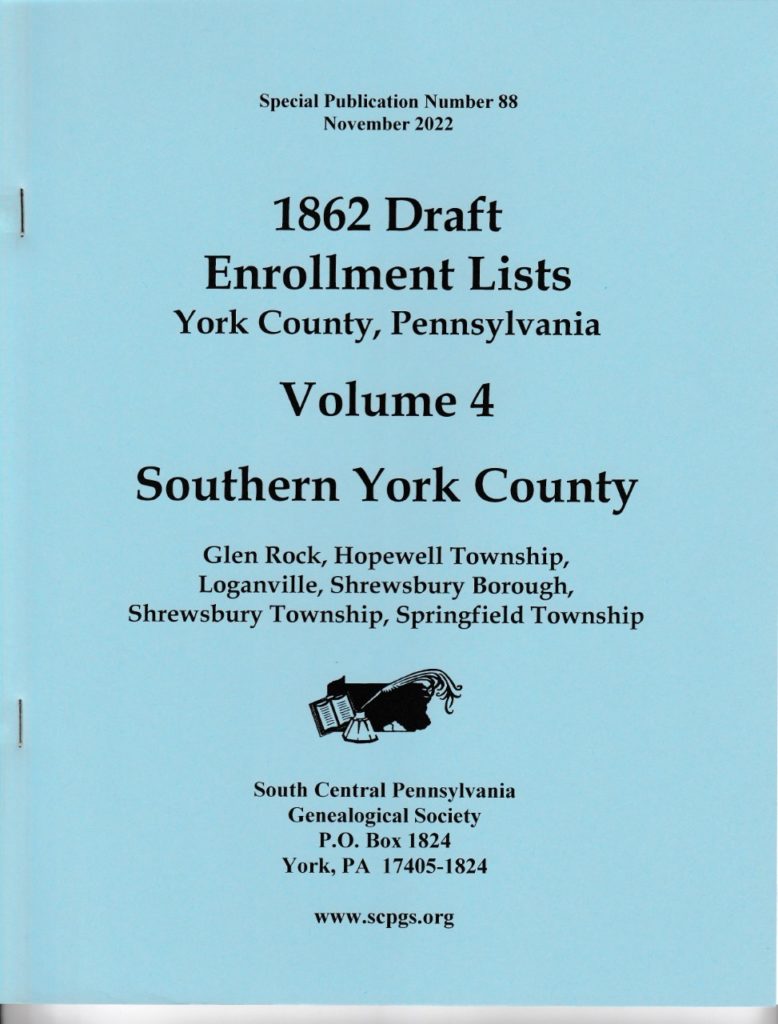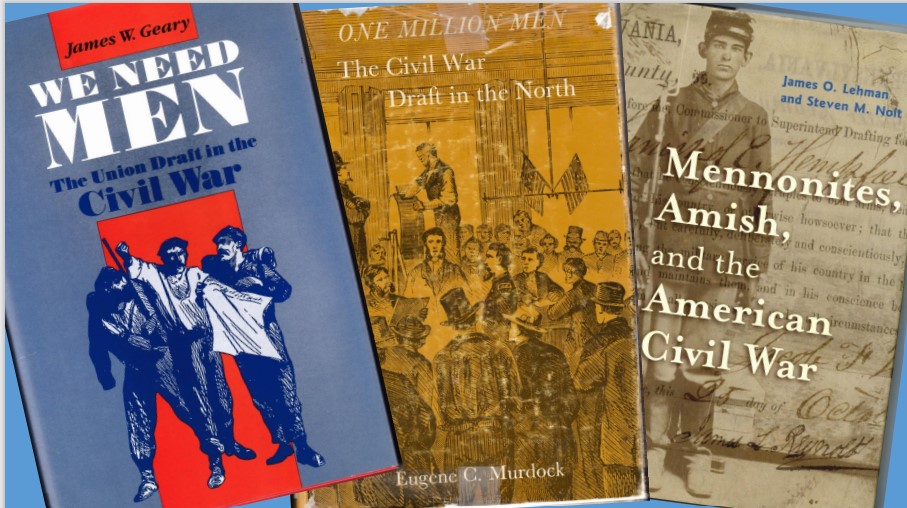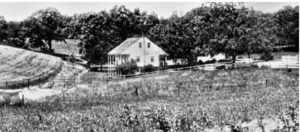Civil War: To serve or not to serve?
HeidelbergTownship
Menges Mills, York County
The situation
Heidelberg Township’s mostly rolling farmland, sprawling between Hanover and Spring Grove, served as home to 33 conscientious objectors in the Civil War.
That number is little known. In fact, researcher Jonathan Stayer might be the only person who has looked at religious objector numbers in York County townships and boroughs. He shared them recently as part of an interview in the York Daily Record/Sunday News: Religious objectors in York County and PA history (ydr.com) (See his list of religious objectors, at bottom.)
He pointed out that York County’s proximity to Gettysburg and the county and state’s contribution of so many sons and other resources to the Union Army have caused most researchers to focus on military and political dimensions of the bloody War Between the States.
But there’s another side of the war, he points out.
“Few historians and genealogists are interested in those men who refused military service for religious reasons,” he wrote. “For religious objectors, the war was more than patriotism, flying flags and ‘glory’ on the battlefield, it was a crisis of conscience.”
And he explained this crisis of conscience: “How would they remain true to the teachings of a faith that required them to reject military service as a legitimate response for a follower of Christ? The story of the Historic Peace Churches is more about peace than about war.”
Heidelberg led the list of townships in conscientious objectors because of its large number of Mennonite and Church of the Brethren congregants. Both are Historic Peace Churches – Mennonite, Bethren, Quaker and other Protestant denominations that hold to Christian pacifism or biblical non-resistance.
Stayer had another observation that ties to needed engagement today in matters of politics and community.
“Maybe if more Peace Church members had been involved politically, both North and South,” he said, “such a devastating war might have been avoided.”
The witness
Stayer, retired as supervisor for Reference Services in the Pennsylvania State Archives, provided this case study of how his kinsmen, as religious objectors, interacted with government in the Civil War.
From Jonathan Stayer:
Like the other members of his immediate family, Adam Stayer of South Woodbury Township, Bedford County — my third great-grandfather — was a member of the German Baptist Brethren (commonly known as “Dunkers” or “Dunkards,” predecessors to the Church of the Brethren and related groups) at the time of the Civil War. These Brethren opposed military service based on their understanding of the Bible, particularly the New Testament and the teachings of Jesus (for example, “love your enemies”- Matthew 5:44). This belief had roots in the Anabaptist branch of the Reformation from which the Mennonites and Amish also developed.

In the summer of 1862 as the Union had a need for more troops and enlistments lagged, Congress authorized President Lincoln to call for additional soldiers from the states’ militia systems and to impose a draft if necessary. Based on this legislation, Pennsylvania began enrollment for conscription at the state level in August 1862 with the actual draft occurring in October. Because the state government administered this draft, the procedures were regulated by the Commonwealth’s laws. State draft laws set the age for military service between 21 and 45 years, so Adam Stayer was subject to conscription as a 38-year-old farmer.
Article VI, Section 2 of the 1838 Pennsylvania Constitution provided that: “Those who conscientiously scruple to bear arms, shall not be compelled to do so, but shall pay an equivalent for personal service.” To comply with this section of the Constitution, the state draft officials allowed those men opposed to military service for religious reasons to file “conscientious objector depositions,” which are now maintained in Record Group 19, Records of the Department of Military and Veterans Affairs, at the Pennsylvania State Archives in Harrisburg. Adam signed and submitted such a document. Since the Constitution did not set the amount to be paid as “an equivalent for personal service,” the General Assembly took up the question in January 1863. The legislature did not agree on the amount of the fee before the federal government took over conscription in March 1863. Therefore, Adam Stayer and other men who claimed “conscientious scruples” were not required to pay anything during this period of the Militia Draft.

The Militia Draft produced inadequate results, so on March 3, 1863, Congress passed the Conscription Act, placing the draft process directly in the hands of the federal government and establishing the Provost Marshal General’s Bureau within the War Department to supervise conscription. The Union was divided into draft districts that corresponded to the Congressional districts of 1863. This federal draft required the enrollment of white male citizens of the United States between the ages of 20 and 45 in two classes: Class I – all men ages 20-35 and single men ages 36-45; Class II – married men ages 36-45. Adam Stayer met both the family and age qualifications for the latter. The 1863 “consolidated enrollment list” enumerated him in Class II as a 39-year-old white farmer, born in Pennsylvania and living in South Woodbury Township of the 16th Draft District that included Bedford County. This list and related records of the federal draft are maintained by the National Archives in Record Group 110, Records of the Provost Marshal General’s Bureau. Additionally, digital copies of the 1863 enrollment lists can be searched and browsed on Ancestry.com (which is accessible free of charge at the York County History Center).
The Conscription Act and the 1864 amendments to it did not include direct exemption for conscientious objectors; however, they could provide substitutes or pay a commutation fee of $300. The Brethren and Mennonites favored paying the fee over having another man serve in their place because they considered the fee a tax that was due to government in accordance with Matthew 22:21 and Romans 13:7. The Friends (Quakers) were less likely to do either, taking a more absolutist stance. Even before reaching the point of having to make this decision, many men who had “conscientious scruples” escaped military service because they were exempted for physical reasons, as was Adam Stayer.
Being in Class II, he was not immediately subject to being drafted. Nevertheless, his name was pulled for military service in 1865. The 16th District descriptive book at the National Archives shows that he was exempted for “feebleness of constitution.” Since he died in 1866 at the relatively young age of 42 years, this evaluation of his health seems accurate. Some doctors who served on Pennsylvania’s enrollment boards were accused of being too liberal in their assessments of physical disabilities.
Adam’s brother David was exempted for a loss of teeth in his upper jaw because soldiers were required to have teeth to bite off the ends of the musket cartridges. Adam’s brother Daniel paid the $300 commutation fee twice, and at the end of the war had the second payment refunded to him in accordance with a decision by the draft bureaucracy. The National Archives holds several letters between Daniel, his Brethren minister, and the draft officials regarding this matter.

Religious objectors throughout York County
Stayer did a quick inventory of townships in York County named in a state register – the 1862 Register of Aliens and Persons Having Conscientious Scruples Against Bearing Arms. He noted that conscientious objectors were pretty well scattered throughout York County. Heidelberg Township, with many Mennonite and Bethren families, lead with 33. Others: Carroll Twp ,1; Codorus Twp., 2; Dover Twp., 11; Fairview Twp., 4; Fawn Twp., 3; Franklin Twp., 3; Glen Rock, 1; Heidelberg Twp., 33; Hopewell Twp., 3; Jackson Twp., 6; Manchester Twp., 1; Manheim Twp., 2; Monaghan Twp., 4; Newberry Twp., 10; North Codorus Twp., 13; Paradise Twp., 7; Peach Bottom Twp., 1; Shrewsbury Twp., 5; Springfield Twp., 4; Spring Garden Twp., 5; Washington Twp., 15; West Manchester Twp., 3; West Manheim Twp., 2; Windsor Twp., 10; York Twp., 7.
The questions
Stayer earned his exemption from enlistment due to “feebleness of constitution.” His brother because of his missing teeth. In the modern era, a common belief is that the draft would never work. Why? What would be the reason for exemption today?
Related links and sources: Religious objectors in York County. Pennsylvania conscientious objectors database. Photos courtesy of Jonathon Stayer.
— By JAMIE NOERPEL and JIM McCLURE



